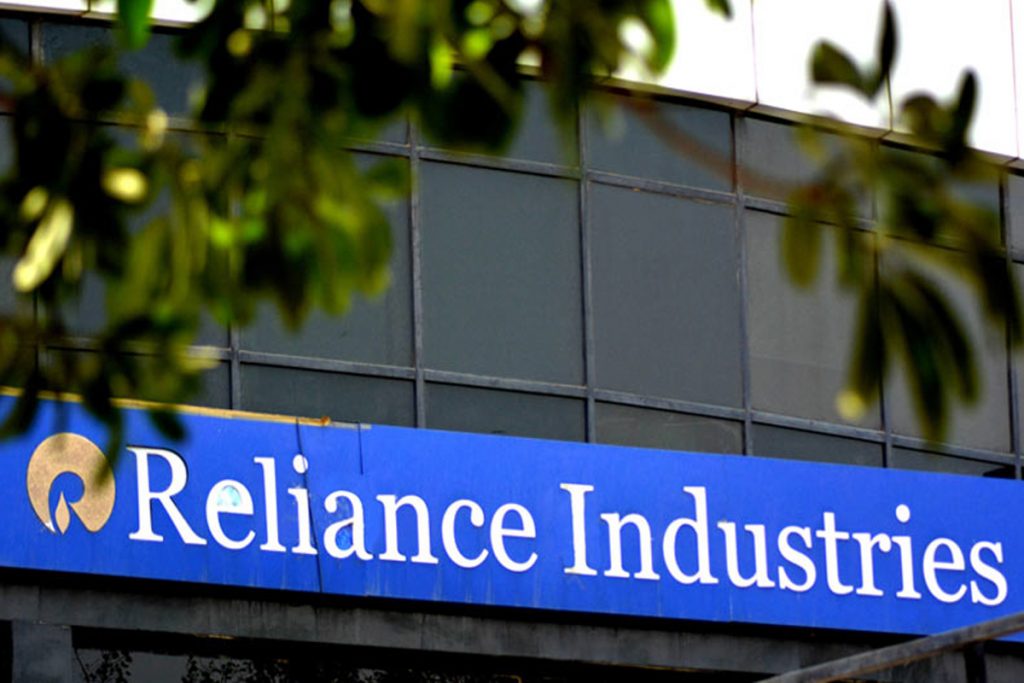New Delhi: Reliance Industries Ltd, India’s most valuable company, Monday reported a 5 per cent fall in the July-September quarter net profit as weak oil refining and petrochemical business hurt operational performance.
Its consolidated net profit fell to Rs 16,563 crore or Rs 24.48 per share in July-September – the second quarter of the current fiscal – compared to Rs Rs 17,394 crore or Rs 25.71 a share in the same period a year back, according to a company statement.
While retail and telecom businesses posted steady performance, the oil-to-chemical (O2C) business, which is made up of twin oil refineries at Jamnagar in Gujarat and petrochemical units saw margins shrink on global oversupply.
The profit before tax (EBITDA) dropped 2 per cent to Rs 43,934 crore. The financial performance was also impacted by finance costs rising by 5 per cent to Rs 6,017 crore, primarily due to higher debt. Also, depreciation rose by 2.3 per cent.
Its cash cow O2C performance was hurt by a global oversupply due to China flooding the market with petroleum products it made from refining cheap Russian crude oil. This led to a fall in product margins.
On the other hand, the firm’s other two main businesses – retail and telecom – saw steady performance.
Retail earnings were muted as consumers held back buying before the start of the festive season.
The telecom segment was the bright spot, with all four key parameters – data minute usage, data consumed, average per-user earnings and number of subscribers – showing growth. Upstream oil and gas production business too saw handsome growth, with the firm and its joint venture partner BP Plc of the UK now producing a third of all the gas produced in the country.
Its total income was marginally higher at Rs 2.4 lakh crore from Rs 2.38 lakh crore in July-September 2023.
The firm’s debt rose to Rs 3.36 lakh crore as of September-end compared to Rs 3.04 lakh crore at the end of June and Rs 2.95 crore in the year-ago period. After accounting for cash in hand, the net debt was Rs 1.16 lakh crore against Rs 1.17 lakh crore in July-September 2023.
EBITDA for Jio Platforms Limited (JPL) – the telecom unit of the firm – increased 17.8 per cent year-on-year due to better subscriber mix, digital services scale-up and revision in telecom tariffs. The same for Reliance Retail Ventures Limited (RRVL) improved by 30 basis points with a continued focus on streamlining operations and a calibrated approach in B2B.
O2C EBITDA was lower by 23.7 per cent due to a sharp decline in product margins. Fuel cracks, or the differential between raw material crude oil and finished petroleum products, declined by nearly 50 per cent year-on-year. Downstream chemicals also declined with muted global demand in a well-supplied market.
“Reliance benefited due to superior ethane cracking economics driven by sharp fall in ethane prices,” the statement said.
Its upstream oil and gas segment EBITDA increased by 11 per cent on account of sustained volume growth and one-time provisioning towards decommissioning cost for the Tapti field in Q2 FY24.
Commenting on the results, Mukesh D Ambani, Chairman and Managing Director, Reliance Industries Limited, said that during the quarter, the firm once again demonstrated the resilience of its diversified business portfolio.
“Our performance reflects robust growth in digital services and upstream business. This helped partially offset weak contribution from O2C business, which was impacted by unfavourable global demand-supply dynamics,” he said.
Growth in Digital Services was led by increased per-user revenue (ARPU) and improving customer engagement metrics reflecting the strong value proposition of its services, he said, adding that the retail segment continues to increase its consumer touchpoints and product offerings across physical and digital channels.
The unique omnichannel retail model enables the business to service a wide range of requirements of a vast, heterogeneous customer base. The retail business continues to partner with renowned domestic as well as global players, expanding its basket of quality product offerings, Ambani noted.
“The focus on strengthening our retail operations will help us rapidly scale up this business in the coming quarters and years and sustain our industry-leading growth momentum,” he said, adding the first of its new energy giga-factories is on track to commence production of solar PV modules by the end of this year.
“With a comprehensive range of renewable solutions, including solar, energy storage systems, green hydrogen, bio-energy and wind, the New Energy business is poised to become a significant contributor to the global clean energy transition,” he added.
Jio customer base rose 4.2 per cent year-on-year to 478.8 million in Q2 but was lower than 489.7 million in the preceding quarter. Average revenue per user (ARPU) increased to Rs 195.1 per month from Rs 181.7 in the preceding and year-ago quarter.
“The full impact of the (recent) tariff hike will flow through the next 2-3 months,” it added.
Retail profit increased 1.3 per cent to Rs 2,836 crore on a marginally declining revenue. The number of stores increased to 18,946 from 18,918 as of June 30.
PTI
